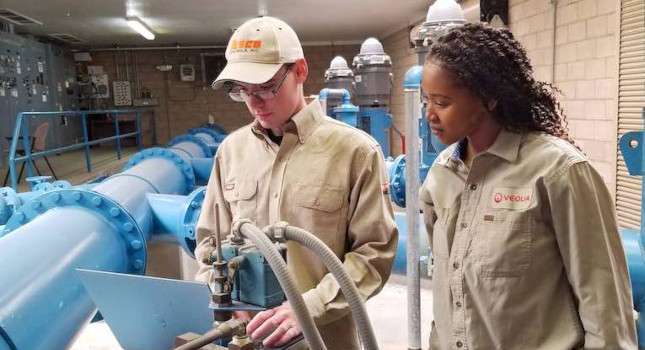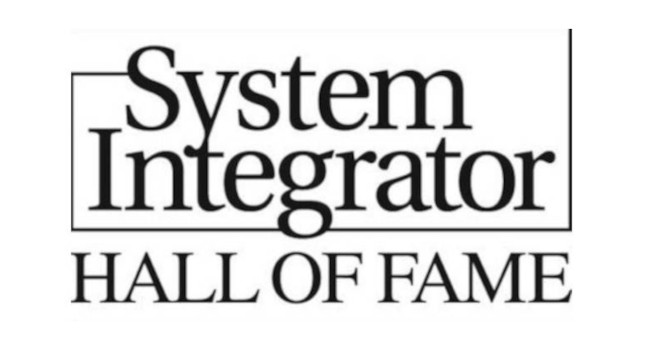System integrator offers a successful approach to attracting, recruiting, training and retaining excellent engineering talent.

Every successful system integrator knows its strength comes from its team members. It starts with a company’s skilled talent to deliver quality work in a timely manner while maintaining superior client relations. Internally, creating an environment that fosters coaching, mentoring and collaboration supports learning and growth for a company’s talent. Hiring for technical and strong business competencies brings talent that communicates well, routinely collaborates and brings a true desire to see successful projects through to achieve client satisfaction and repeat business.
A strong talent pipeline is vital to hire the right people with the right skills to grow a business. In today’s market, hiring technical talent is a well-known challenge, which means it’s vital to take a multi-pronged approach to recruiting. Strategic staffing using a variety of approaches can make the difference.
Traditional advertising
The traditional approach to advertising and posting positions with industry organizations still gets the word out that a company is hiring and growing. However, times have changed, and effective hiring practices require getting creative. Routine networking and building and nurturing relationships can bring greater success to a hiring strategy.
Strategic hiring: Universities and technical colleges. While there are many contributing factors to attracting and hiring good talent, college career fairs can bring forward a wealth of talent eager to jump-start their careers. Benefits of participating in college career fairs include:
- Access to many candidates in a one-stop environment
- Increase your company brand awareness
- Networking opportunities with other organizations.
Identify high potential college students. One element to success is identifying key talent early on, build a relationship with the student, follow their progress and consider an internship opportunity when it makes sense. It is possible to identify a sophomore student with a strong GPA, solid communication skills, demonstrated leadership by involvement in school or community activities to consider for future employment. Many times, employers focus on the here and now and miss those opportunities to build a relationship for future hiring potential. This also is recommended to build diversity in your pipeline.
Relationship building with engineering professors. Be unconventional — reach out and get to know the engineering instructors at universities and two-year technical colleges. Universities are beginning to offer robust programmable logic controller (PLC), human-machine interface (HMI), advanced proportional-integral-derivative (PID) control, network security and Industrial Internet of Things (IIoT) courses. Let the instructors know when you will be at their career fair or when you have new intern or job opportunities. They are well-networked with their students and will get the word out for you. Likewise, build a relationship with the university and college career placement centers.
Support an internship program. Many employers take advantage of supporting internship programs and it’s a great hiring strategy. Employers recognize a solid-performing intern is a good investment because once they are hired for a full-time position, they already know the office environment and are already part of the team. Internships also differentiate students in the job market and increase interview opportunities for them.
Look for candidates that may already have an internship under their belt in a related industry. A strong GPA, completed related coursework, demonstrated problem solving and team skills are other important factors to consider as well. Hiring interns is a great way to assess technical ability that fit with your team aligned with your hiring strategy.
Be present on campus. Larger to mid-size employers can provide sponsorship, donations and have their name posted in college campus conference rooms. Look for opportunities, no matter what your company size, to donate time/presence on campus or in support of senior project teams. Employer branding and recognition on campus can be a “feeder” program for your hiring strategy.
Networking
Networking is imperative in our fast-moving society. Strengthening business connections, sharing fresh ideas and best practices, seeking career advice and support can open one’s mind to a valuable and different perspective. There are many social media options for networking, but in-person introductions can be most memorable. Attending industry conferences and training sessions create great networking opportunities and can diversify a professional network.
According to the Harvard Business Review, “A mountain of research shows that professional networks lead to more job and business opportunities, broader and deeper knowledge, improved capacity to innovate, faster advancement and greater status and authority. Building and nurturing professional relationships also improves the quality of work and increases job satisfaction.”
Company culture matters
Company culture is the number one question candidates want to know about. Culture isn’t developed overnight. Ignite and support a culture of learning, collaboration, empowerment, communication, hard work, recognition, growth and giving back to communities all have an impact on a positive culture. Bringing your team together for stand-up meetings, engaging your team to solve problems, promoting and celebrating accomplishments often can lead to greater retention and engagement of a team. Having an annual employee engagement survey in place can help you measure your success with employee satisfaction.
Bringing teams together for fun outings and teambuilding activities also have a significant impact on culture. Dining out as a team, good laughs, good relationships, recognition and awards are always appreciated. A few examples of activities include:
- Annual golf outings
- Attending sporting events, shows or concerts
- A team-brewing creation
- A hike through a park
- A scavenger hunt at a local park, zoo or museum
- A city food and architecture tour
- A Segway tour.
Appealing to the Millennial workforce
Millennials can bring youthful perspectives and be a good fit into a well-established culture.
To system integrator veterans, it is no secret what makes a valuable partner to clients. Effective communication, job knowledge, pride in quality and workmanship and a commitment to seeing a project through are just a few key things from a lengthy list learned in the SI profession.
A successful business model is driven behind the scenes by a company culture built not only on providing career and life stability, but also by valuing employee satisfaction. Adding millennials can bring excitement about the future with the right skillset and fit with an already established team. Many college grads are hitting the ground, showing determination, grasping new technical concepts and bringing energy and optimism to an ever-changing technology landscape.
Competency-based talent management
Good hiring practices do not end with onboarding and supporting a great culture. It is also recognizing that people are our greatest asset. Actively working to develop a team member for a long-term career with a company is paramount. This can be done effectively through the following six approaches:
- Onboarding training program for new hires
- Annual employee performance review process
- Competency-based talent management and career planning model
- Outlining a path of industry certifications, career pathing and specialization
- Encouraging attendance at industry technical conferences
- Supporting leadership development.
A good competency based/talent management process that is well understood can further enhance company culture. It can be viewed as re-recruiting your talent, providing continuous challenge and learning that impacts each employee’s growth. Competency-based/talent management is an approach for managing talent that defines the competencies required for organizational success, and provides a framework for ensuring employees are hired, developed, promoted and managed according to these competencies.
Looking ahead
The SI industry is ever-changing. To stay ahead of the curve in keeping up with technological change, we need to be developing our talent now. A successful approach to attracting, recruiting, training and retaining excellent engineering talent has many moving parts. It can start with a story about a well-established integrator with a rich history of providing exciting opportunities and a supportive culture to catch the attention of the many great engineering candidates out there.
Mary Bergjans is the director of human resources and administration at Malisko Engineering Inc.
Malisko Engineering Inc. is a certified member of the Control System Integrators Association (CSIA). The company received the 2015 System Integrator of the Year Award in 2015.
This article appears in the Applied Automation supplement for Control Engineering and Plant Engineering.



